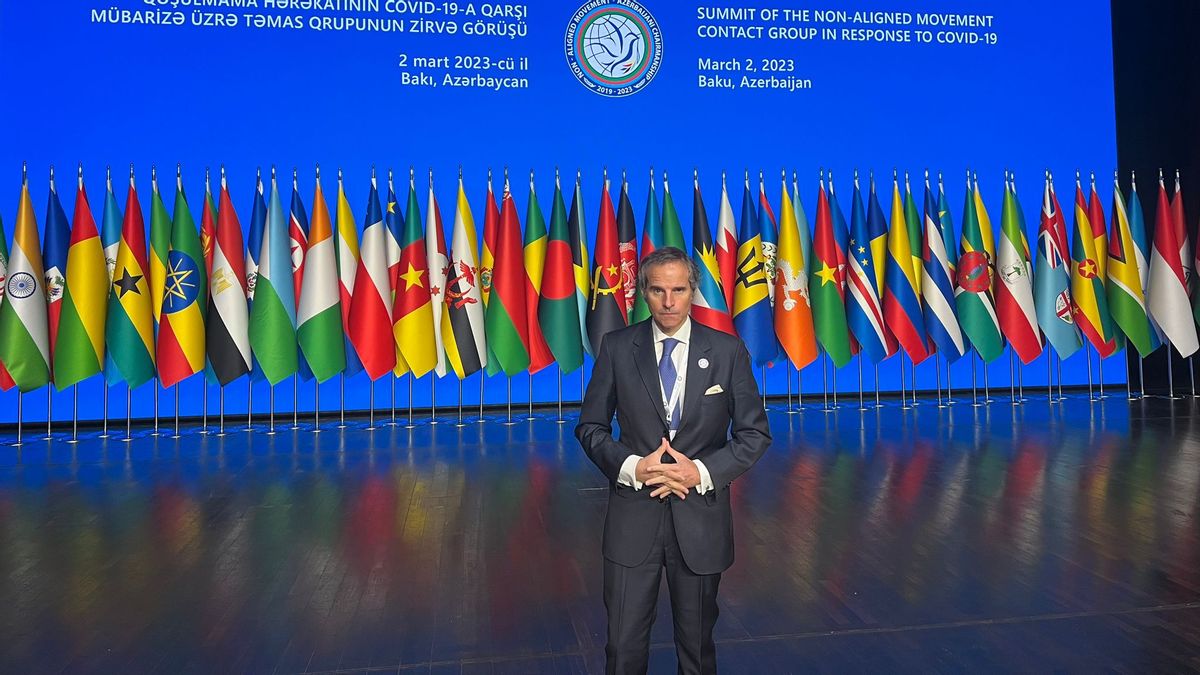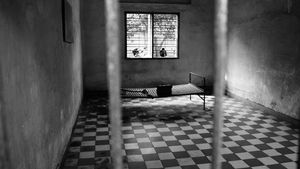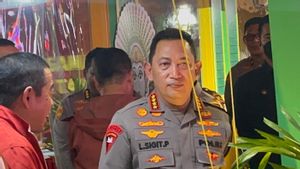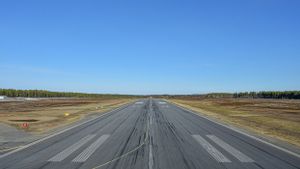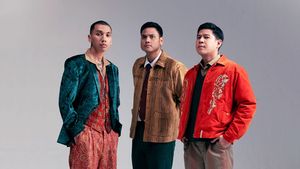JAKARTA - Director-General of the International Atomic Energy Agency (IAEA) Rafael Grossi on Monday said his experts "wouldn't take too long" to determine whether Iran had made intentional attempts to enrich uranium near the purity of 90 percent, a high enough level to produce a nuclear bomb, or whether the spike was accidental.
Speaking days after announcing a new deal with Iran would allow the IAEA to carry out further monitoring activities, Grossi said his inspectors would do "treatious work" to reconstruct Iran's recent nuclear progress.
"Things continue without us getting any information and hopefully this will stop now," Grossi told reporters in Vienna, Austria.
"My inspectors don't just have to interpret and read this collection of information, but there will also be real loopholes, because of what wasn't recorded or recorded, we couldn't recreate," Grossi added.
Iran cut off surveillance cameras at its nuclear facility nine months ago, after the United Nations agency requested answers to traces of unexplained uranium in three regions that should not have been dedicated to nuclear activity.
"There will be a need for us to sit down with our Iranian counterparts, take a look at notes, agree on specific steps to try to reconstruct this puzzle."
Previously, enriched uranium particles up to 83.7 percent had been detected at Iran's underground nuclear facility Fordow, about 100 km south of Tehran. That's just below 90 percent needed to produce an atomic bomb, according to an IAEA report.
Grossi said this was a serious development that his inspector was investigating, but he also noted that the spike did occur.
"I have to say it. Or I will immediately conclude that it is part of a deliberate enrichment campaign close to 90 percent which will have serious consequences," he said.
The inspector will be able to determine whether "this was intentional, or whether it happened once, or whether there were more specific activities", Grossi said.
Meanwhile, Iran denies wanting to acquire atomic weapons, saying it is not making efforts to enrich uranium above 60 percent purity.
But Tehran said, "undesired fluctuations... may have occurred" during the enrichment process.
A joint statement issued on Saturday following Grossi's return from Tehran read, Iran "expressed its readiness to... provide further information and access to address the outstanding security issue", referring to traces of uranium.
Iran will also voluntarily allow the agency to carry out further monitoring activities. "Modality will be agreed between the two parties in a technical meeting that will soon take place in Tehran," the statement said.
Speaking from Vienna airport, Grossi also said on Saturday, the IAEA would gain access to interested people in investigating traces of uranium on unannounced sites.
However, Iranian Atomic Energy Organization spokesman Behrouz Kamalvandi later told state news outlet Irna the issue of access was "Never raised" during a visit by the Director-General of IAEA.
Asked Monday by reporters about apparent contradictions to his statement, Grossi said not everything was "written on paper."
"You may have noted, in a joint statement there are certain modality references that need to be agreed upon," he continued.
He added that the technical team would "immediately" travel to Iran for technical discussions, refusing to provide a detailed list of places or dates related to this process.
"I am satisfied that we seem to be moving in a more assertive direction," Grossi said of a recent discussion with Iranian officials, including his first meeting with President Ebrahim Raisi.
"We see a real substance in Fordow's (facilitation), where the agency will conduct checks almost every day," he added.
Tehran and the IAEA have been at loggerheads since Iran withdrew from its commitment under the 2015 Nuclear Deal, which collapsed after the US withdrew in 2018.
Iran has since increased its uranium enrichment, rejecting calls to explain the presence of traces of the element on unannounced sites.
The English, Chinese, Japanese, Arabic, and French versions are automatically generated by the AI. So there may still be inaccuracies in translating, please always see Indonesian as our main language. (system supported by DigitalSiber.id)
